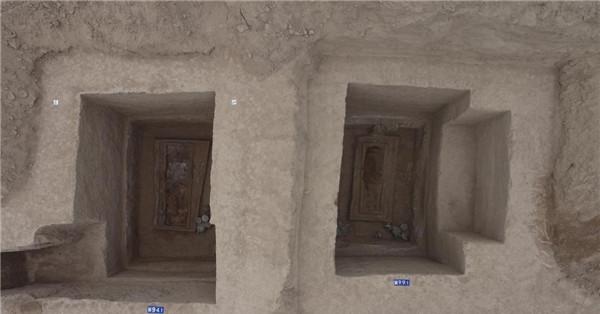In the tombs of the Warring States period, the largest specification tomb is now found to be a heavy coffin, the tomb owner is leaning on his back and straight limbs, female, and the burial utensils are 5 pieces of copper ding, copper plates, copper pots, copper boats, pottery bristles, copper car rulers, jade beads, coal essences, agate charms, sea shells, etc. The tomb being excavated is also a heavy coffin, and bronze dins, copper bristles, copper boats and other ceremonial vessels have been unearthed; Bronze carriages, car jurisdiction, car titles and other carriages and horse tools; Copper goats, bronze halberds, copper axes and other weapons; Musical instruments such as bronze chimes and stone chimes, as well as jade pillars, stone gui, bone nails, etc. After preliminary research, the excavation combination of such tombs is Ding, bean, pot, plate, za, boat, mane, etc., which is the excavation of the early Warring States Three Jins cultural style, especially the bronze chimes and other ceremonial instruments, and is the first time that bronze chimes in the Warring States period have been found after the establishment of Sanmenxia City.

In the early Warring States period, husband and wife were buried together in the tomb
According to historical records, the area was occupied by Wei, Qin, and Han. The cemetery may be a public cemetery in the early Wei Dynasty. The discovery of the cemetery provides important archaeological data for the study of the historical and cultural features of the pre-Qin period in western Henan, the material life materials of people at that time, the layout of the early Warring States cemetery, and the changes in the forces of the three kingdoms of Wei, Qin and Han, highlighting the important geographical and military status of the region.
Early Warring States horse pits
Eastern Han Dynasty brick chamber tomb
Warring States tombs are being cleaned up
Bronze dings were unearthed
Bronze Dinh Crab Pattern
Source: China Youth Network